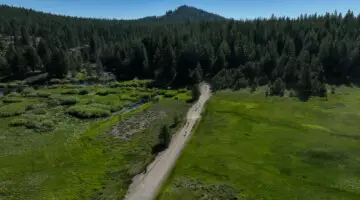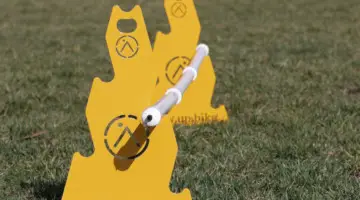Summer: a time to relax, have barbeques, hit the beach, and … get ready for cyclocross season. If you finished last season feeling like your technical skills weren’t quite up to par, or you hit the buffets a bit too hard over winter, or if you’re just finding yourself a little unmotivated, it might be time to consider a cyclocross clinic or a camp. We don’t mean you have to drop a ton of money on a formal clinic, or do a Sven Nys and head to Majorca for some serious training time. A clinic can be with a few buddies for a few hours on a Saturday, a camp can just be some long training hours during a family vacation or a light workweek, or you can even combine the two and head for a camping adventure with your teammates and get in some training hours while practicing skills. It’s about choosing what’s right for you and finding the best way to physically and mentally start the season right. Setting a few days on the calendar aside for “camp” can be a great psychological motivator to get you excited for next season.
If you’re new to the sport, a formal clinic can be a great way to get acclimated to the sport while making some racing friends. Super new to ’cross? Check out our Eight Tips For Starting Cyclocross. Clinics can range from one day to a full week, and the level of intensity can vary. While some clinics, like the one offered by the Boulder Cycle Sport in August, run for a long weekend and offer options for lactate threshold and power testing or bike fitting, there are plenty of cheaper options for day-long clinics that cover the bare bones of cyclocross racing.
A well-run clinic can help improve your technical skills and while it won’t improve your fitness immediately, coaches at the clinics can offer great suggestions for structuring a training plan and for preparing for Fall race season. (Check out our piece, Improving Skills, One Clinic at a Time.) ’Cross is fun regardless of how good you are, but with improved skills, you’ll be faster, more efficient, safer, and likely to have a better time. Flip through the pages here and you can find out about what to expect, how to pick a clinic, and get some tips that you can start trying out in the meantime!
However, if money is tight, there aren’t clinics close by, or you just don’t want to pay for a clinic, you can also opt to have your own personal clinic, either solo or with a group of friends. In the following pages, we talk about how to practice on your own, and how to host an informal clinic while still learning a lot and having fun. Our old columnist Josh Schwiesow wrote about his experiences last summer in this column, Have Your Own Personal Cyclocross Clinic, and says, “So, what do you need? Truthfully, not much. Beyond your bike, all you need are some cones, some grass, some barriers and maybe some dirt, sand, or rocks. Then you are all set!”





























